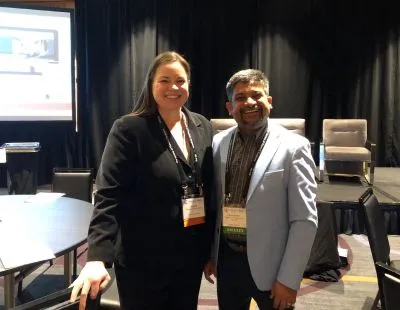- Psychological safety is essential for effective surgical teams and better patient outcomes.
- Supportive leadership—not intimidation—builds trust, encourages communication, and drives performance.
- The STS Leadership Institute helped define personal goals and highlighted areas for growth as an early career surgeon.
The 2025 STS Leadership Institute meeting held in Chicago was a fantastic experience that far exceeded my expectations. I was not only able to network and get to know many people in the field, but was also able to take away many lessons that helped me to determine the path I would like to take to become a better leader as I grow and mature as a surgeon. As an early-career surgeon, this course was key in helping me define my goals, recognize areas I need to improve, and identify my strengths as a team leader.

During the course, Dr. Ram Subramanyan, an exemplary leader in the field, led a session on “evaluating others” that included case scenarios and table discussions, which I found to be the most valuable. Dr. Subramanyan introduced me to the topic of “team psychological safety,” which was originally presented by Harvard Business Professor Dr. Amy Edmondson in the 1990s.
There is no doubt that cardiothoracic surgery is a high-risk and high-stress field. Reflecting on our training and real-life experiences, we as surgeons discussed how fear and intimidation have been leadership styles we have been accustomed to for far too long. As a group, we recognized that this leadership style is not only ineffective but dangerous.

Dr. Subramanyan explained that through the research of Dr. Amy Edmondson on “team psychological safety,” when people feel safe and valued on a team, they are more willing to speak up when they feel there is a concern. They take ownership of their strengths and weaknesses and make decisions without fear of retribution. Ultimately, by creating this type of environment, there is better team performance and patient outcomes.
Creating team psychological safety is especially important in fields such as cardiothoracic surgery, where how well a team works determines how well a patient’s outcome is. After these sessions, I realized how important is for me to always maintain the goal of leading a team were everyone can speak up without fear. I know personally I have been a part of teams where I was afraid to say something because of the concern of retaliation. This is not how I want any member of my team to feel.
Overall, this helped me to better define goals and objectives for me and my team as I move forward in my career.
